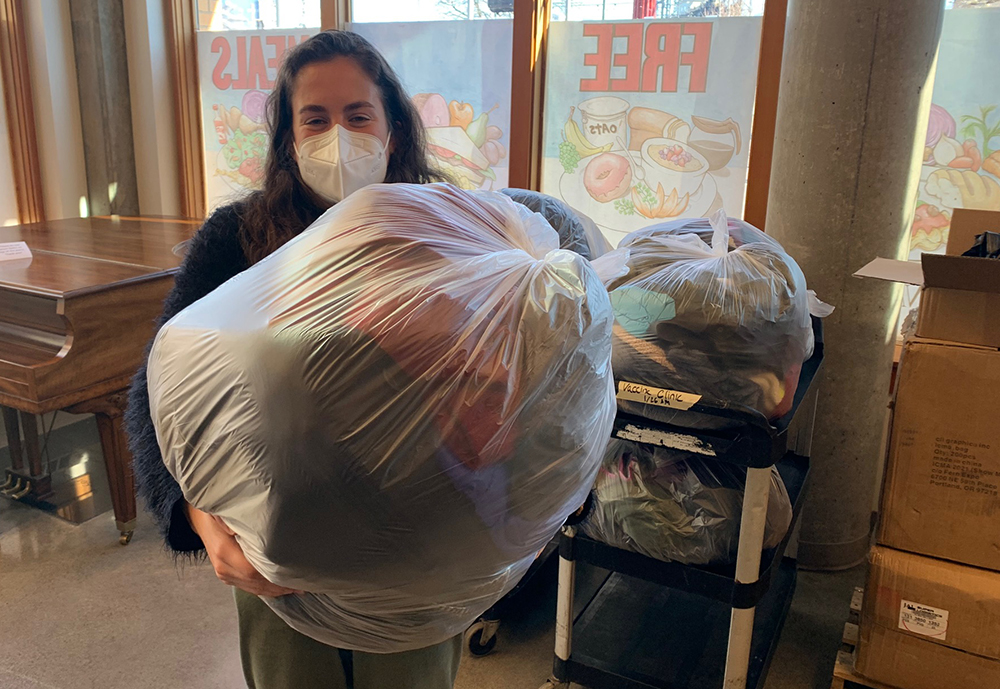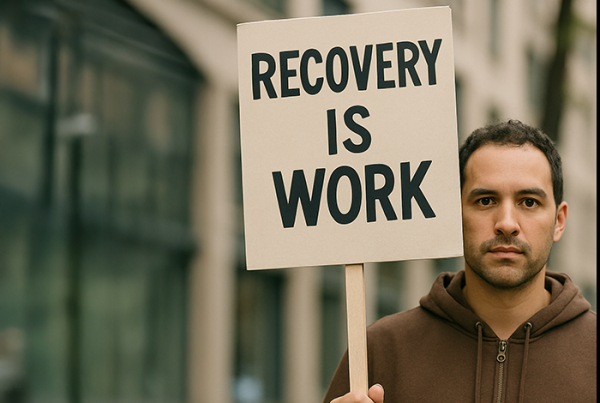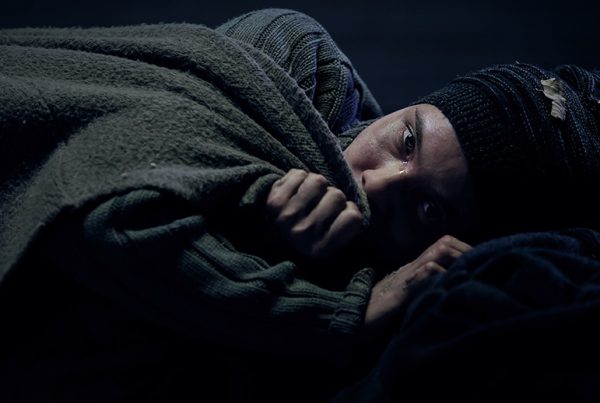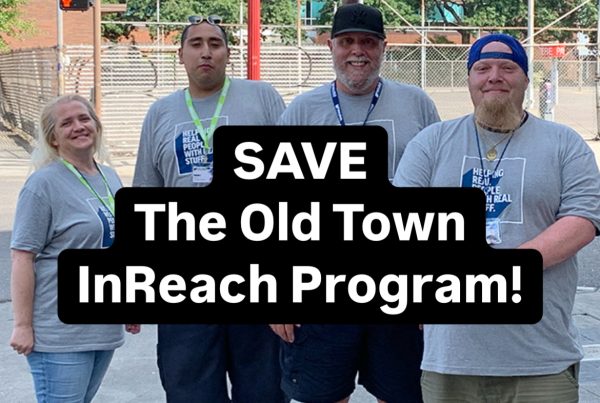Blanchet House partners with Portland-based company Pioneer Wiping Cloth to recycle clothes we cannot give out into cleaning cloths.
By Etta Moen
As an organization offering to clothe people experiencing homelessness, Blanchet accepts clothing from caring donors. It’s a big job to take in and sort clothing. Volunteers are needed to sort the clothing, share it with peer aid groups, and distribute it to people without access to laundry.
Consequently, it is a personal challenge of mine to build a better system. A system that allows staff to quickly find items requested by our houseless guests waiting in the rain and cold outside.
FACT: 62,810 pounds of clothes were donated to Blanchet House in 2021
Staff like me and volunteers must keep up with mounting piles that often contain unwearable clothing. Clothes that are torn, dirty, or inappropriate for use must be disposed of somehow. Blanchet House is unable to launder or mend clothes. Furthermore, storage is limited so we must keep seasonally appropriate clothes on hand and remove out-of-season clothing. For example, shorts, tank tops, flip flops, or swimsuits will not help our houseless guests from winter weather.
To keep unusable clothes out of landfills I sought a partner that can recycle clothes in an environmentally friendly way.
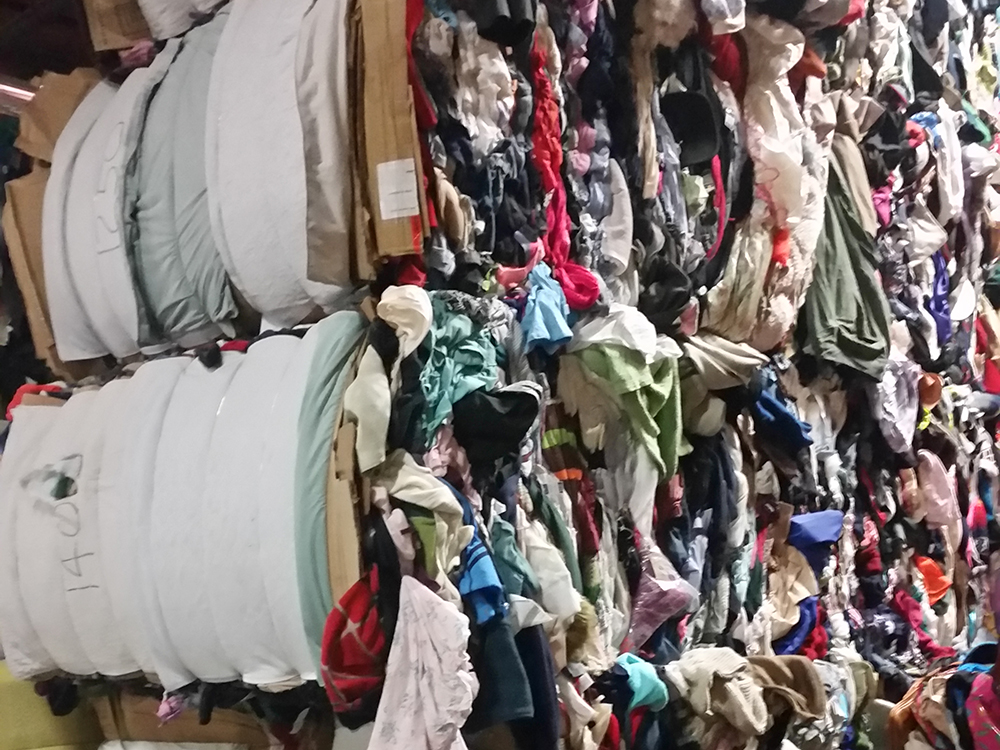
Bales of mixed rags at Pioneer Wiping Cloth. Pioneer recycles clothes into cleaning cloths for industrial use. (Courtesy Pioneer Wiping Cloth)
Recycle Clothes into Cleaning Cloths
I discovered Pioneer Wiping Cloth, a local business that’s been operating since 1931. They turn clothes that we send them into rags for industrial cleaning. Pioneer cuts, cleans, bales, then sell the cloth by the pound to businesses that need an economical alternative for maintenance.
“It’s amazing. The fact that clothing is being made into something useful gives us the opportunity to take in more clothing and the ability to move it along in a sustainable way,” says Jennifer Ransdell, Blanchet House’s Services Coordinator.
Sustainability in All Areas
Clothing is not the only way Blanchet practices sustainable methods. Similar to how we aspire to eliminate clothing waste, we also work to maintain a nearly zero food waste kitchen and operate from an energy-efficient LEED Certified Platinum building.
Blanchet House does its absolute best to re-donate, recycle, and repurpose food and clothing so nothing is wasted. However, we need donors to understand that while we have a more sustainable way to discard items the process is labor-intensive.
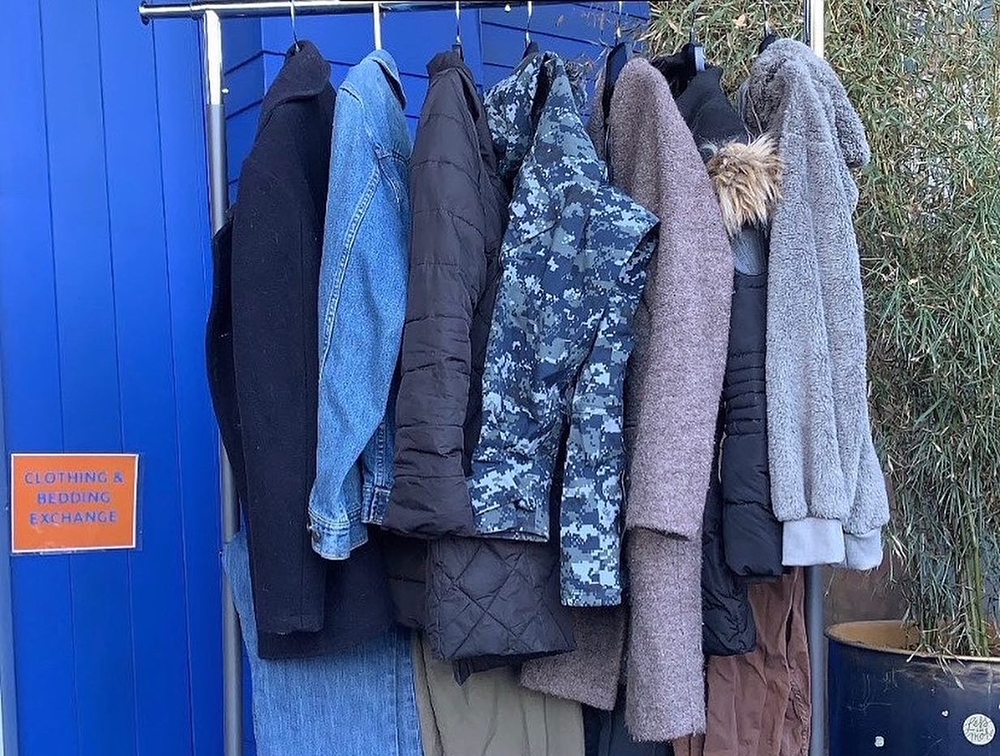
Jackets shared with Hygiene 4 All await selection by guests experiencing homelessness. Hygiene 4 All offers showers at their location under the Morrison Bridge. (Courtesy Hygiene 4 All)
Frequently, I am overwhelmed by the generosity of donors. And I don’t want to discourage people from giving to us. We ask that donors think about the items they intend to donate.
- Will they be useful to someone who is living outside?
- Will the items be helpful to someone starting a job that requires them to be on their feet all day?
- Are they seasonally appropriate?
In addition, having the ability to recycle clothes makes the process of sorting clothing much easier. Especially with limited space. We no longer have to scramble to find a place to put things. This recycling program adds to the legacy of sustainability that Blanchet House has created.
“We honor the labor and resources it takes from the Earth to create things. We are trying our hardest to use everything that we can,” says Ransdell. “No one wants to throw things away because you don’t need them anymore. You try and find a use for them.”
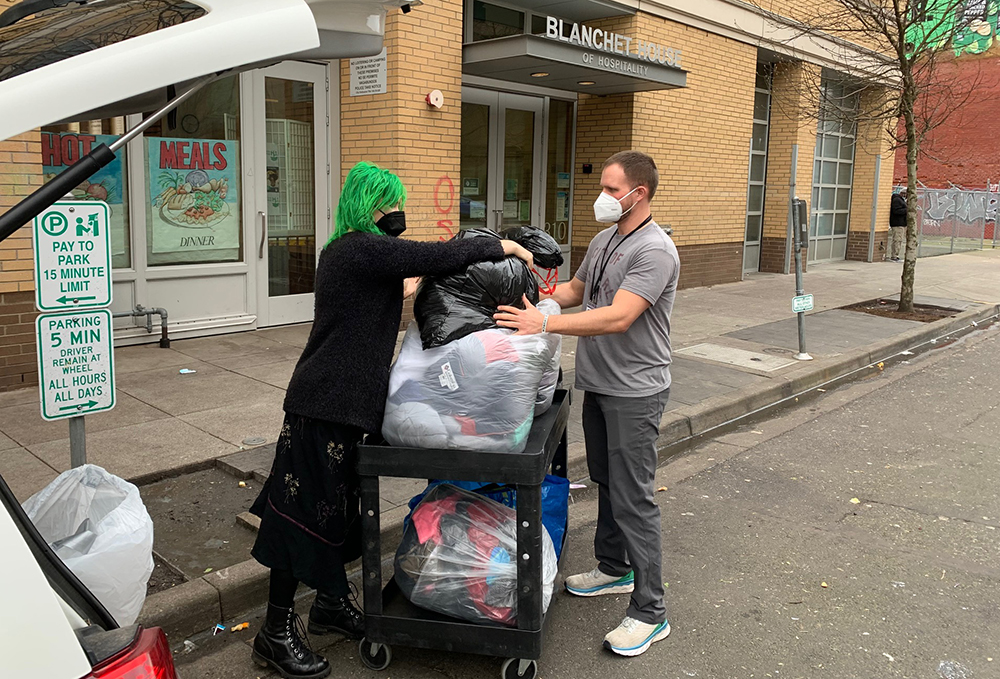
A donor drops off bags of used clothing at Blanchet House. (Photo by Jon Seibert)
How to Donate Clothes
You can donate new or gently used clothing Monday to Saturday, from 8-10:30 a.m. or 1:30-4 p.m. See a list of most needed items by season. Questions? Email us at info@blanchethouse.org.
Moen is an intern at Blanchet House and a graduate of Lewis and Clark College.














